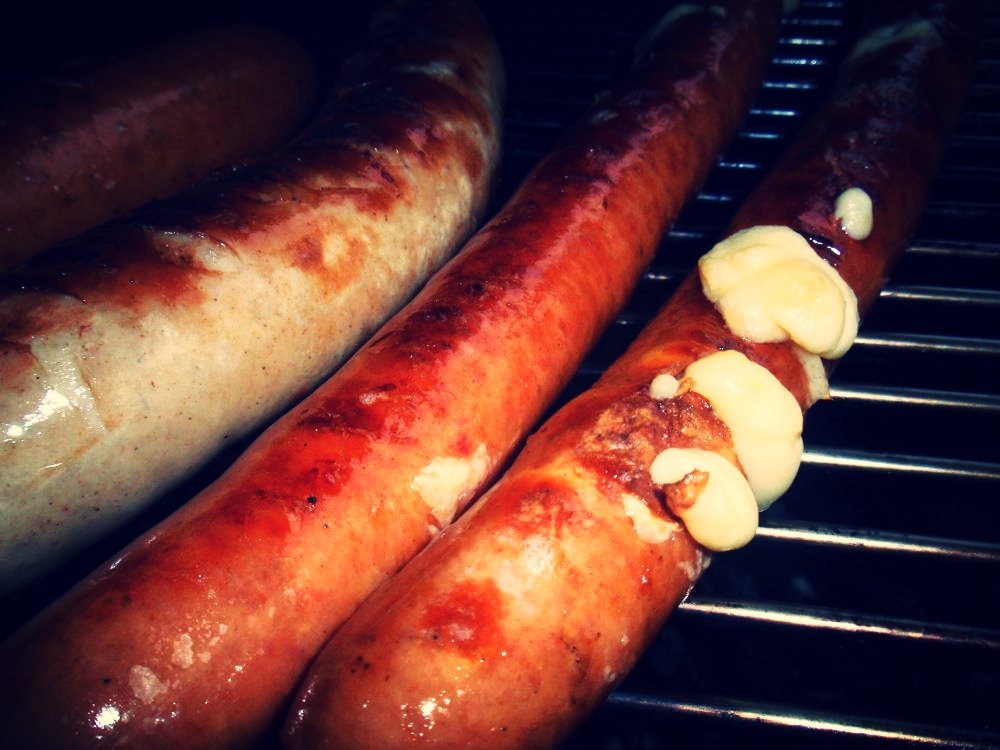Ain't No Party Like a German Grillparty
There are things that surprise people when they first arrive in Germany; eating cheese and onions for breakfast, putting cola in beer and the continued popularity of warbling songstress Helene Fischer. In addition to these curiosities, we can add the overwhelming popularity of barbecues. Germany isn’t renowned for it’s barbecue culture, but it probably should be. Such is the popularity of barbecue in Germany, people will attempt to prolong the enjoyment of the great summer ritual well into winter, even going as far as to make Christmas dinner on one, despite the knee high snow drifts. The world knows that Germans love a wurst, but BBQ in Germany extends passed the national food to a range of different dishes, from bacon on a stick to potato salad.
What won’t come as a surprise is the seriousness with which Germans approach their barbecues. Where the British tend to improvise, the Germans prefer to prepare meticulously. Type “Grillkurse” into Google and the results speak for themselves. Every form of grilling technique is available to learn, from the basics of cooking a wurst to the complexities of the Dutch Oven, the latter being a type of cooking pot rather than a terrifying sexual act. Courses such as “Die Kunst des Holzkohlegrillens” (The art of charcoal grilling) and Kulinarische Weltreise (Culinary World Tour) are available to those who wish to go beyond the confines of basic grilling. Although the German grill has long been the preserve of men, there are even course designated as “Ladies Only”, which goes to show how truly progressive modern German grilling has become. Woman might not be paid the same as their male counterparts, but damn it they can be patronised by a man with a large spatula and an in-depth knowledge of rotisserie chickens.
Once the dark arts of the grill have been mastered, Germans can go forth and cook all the beasts of the land and fish of the sea. What should be put on the barbecue is a source of much debate, one in which I, as a child of 1980s Britain, am ill equipped to take part. My experiences of British barbecues has left me with little useful knowledge, except that I know chicken legs will most definitely kill you unless the inside is twice as hot as the surface of the sun and that Birdseye frozen beef burgers will shrivel to the size of a 2p piece when cooked, which denotes that they are ready to eat. The British spend most of the summer months trying to avoid giving each other horrific bouts of food poisoning, something few in Germany seem concerned about.
Wurst is the obvious king of the German Grillparty, with every region having their own particular variant. Bratwurst is a popular option, but in all honesty any wurst cooked on a grill will be welcomed. My personal favourite is the Käsewurst or Käsekrainer, which originally comes from Austria but is a staple of a good barbecue here as well. Essentially it is like a premium hot-dog with cheese packed into the middle, It might sound like an unholy abomination, but it’s actually very tasty, albeit when eaten in moderation.
Along with the Wurst can be found the Grillfackeln, a stick with bacon wrapped around it. I have a difficult relationship with these ever since my first barbecue in Germany. Back in 2008, I was invited to meet my then girlfriends parents for the first time and to celebrate the occasion they hosted a Grillparty for all the family. Terrified of making a fool of myself and worried that I might seem impolite, my instinctive British politeness set in and I continued to accept the various foods offered to me well past the point of my stomach’s ability to digest the cornucopia of meat. Among the number of delicious things on offer were the Grillfackeln. I cannot remember exactly how many I ate, but to this day every time I see one at a barbecue I have involuntary meat sweats.
Wurst, a variety of Steaks and bacon on a stick are very common, but Germans also pride themselves on producing a range of amazing salads for any barbecue. Visitor should expect to come across potato salad made to regional standards. Germans will happily debate what makes a good kartoffelsalat, arguing over how much vinegar should be mixed in and whether boiled eggs have any place. You should also expect to find a Nudelsalat. Each family has their own way of doing things, but all will contain the secret ingredient of Miracel Whip. For the uninitiated, this is an alternative to mayonnaise, originally an American condiment it has become an important part of the German diet since the 1970s. Of course, this being Germany, Nudelsalat also contains meat, usually ham or chopped Wurst. It might sound a little strange, but I have grown to love Nudelsalat with a burning intensity that I usually reserve for football and Star Wars movies.
Grill parties are the highlight of a German summer and although they may not have the credibility of Texas or Kansas-City BBQ, they are one of the greatest aspects of living in here. The earnestness with which Germans approach barbecue might be alien to the ‘make it up as you go along’ culture of the UK, but it’s this seriousness that seems to be the key to making a great German BBQ. The food poisoning Russian roulette of the British barbecue certainly keeps things interesting, but I really don’t miss the jeopardy that accompanies any invite. The earnestness of German grilling does seem odd at first, but I hear few complaints once everyone tucks in to plate of wurst, Grillfackeln and kartoffelsalat.
Image Credit
Photo by Paul Hermann on Unsplash
Photo by Danny Gallegos on Unsplash
Photo by Markus Spiske on Unsplash
Photo by Vincent Keiman on Unsplash







